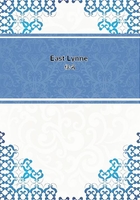
第63章
"Come, Thorn," cried he, "here's a weed for you."
Captain Thorn glanced toward Mr. Carlyle; he appeared of a far more gentlemanly nature than Tom Herbert.
"You'll have one too, Carlyle," said Herbert, holding out his cigar-case. "Oh, I forgot--you are a muff; don't smoke one twice a year. I say how's Lady Isabel?"
"Very ill still."
"By Jove! Is she, though? Tell her I am sorry to hear it, will you, Carlyle? But--I say! Will she smell the smoke?" asked he, with a mixture of alarm and concern in his face.
Mr. Carlyle reassured him upon the point, and turned to Captain Thorn.
"Are you acquainted with this neighborhood?"
Captain Thorn smiled. "I only reached West Lynne yesterday."
"You were never here before then?" continued Mr. Carlyle, setting down the last as a probably evasive answer.
"No."
"He and my brother Jack, you know, are in the same regiment," put in Tom, with scanty ceremony. "Jack had invited him down for some fishing and that, and Thorn arrives. But he never sent word he was coming, you see; Jack had given him up, and is off on some Irish expedition, the deuce knows where. Precious unlucky that it should have happened so.
Thorn says he shall cut short his stay, and go again."
The conversation turned upon fishing, and in the heat of the argument, the stranger mentioned a certain pond and its famous eels--the "Low Pond." Mr. Carlyle looked at him, speaking, however in a careless manner.
"Which do you mean? We have two ponds not far apart, each called the 'Low Pond' "
"I mean the one on an estate about three miles form here--Squire Thorpe's, unless I am mistaken."
Mr. Carlyle smiled. "I think you must have been in the neighborhood before, Captain Thorn. Squire Thorpe is dead and the property has passed to his daughter's husband, and that Low Pond was filled up three years ago."
"I have heard a friend mention it," was Captain Thorn's reply, spoken in an indifferent tone, though he evidently wished not to pursue the subject.
Mr. Carlyle, by easy degrees, turned the conversation upon Swainson, the place where Richard Hare's Captain Thorn was suspected to have come. The present Captain Thorn said he knew it "a little," he had once been "staying there a short time." Mr. Carlyle became nearly convinced that Barbara's suspicions were correct. The description certainly agreed, so far as he could judge, in the most minute particulars. The man before him wore two rings, a diamond--and a very beautiful diamond too--on the one hand; a seal ring on the other; his hands were delicate to a degree, and his handkerchief, a cambric one of unusually fine texture, was not entirely guiltless of scent. Mr. Carlyle quitted the room for a moment and summoned Joyce to him.
"My lady has been asking for you," said Joyce.
"Tell her I will be up the moment these gentlemen leave, Joyce," he added, "find an excuse to come into the room presently; you can bring something or other in; I want you to look at this stranger who is with young Mr. Herbert. Notice him well; I fancy you may have seen him before."
Mr. Carlyle returned to the room, leaving Joyce surprised. However, she presently followed, taking in some water, and lingered a few minutes, apparently placing the things on the table in better order.
When the two departed Mr. Carlyle called Joyce, before proceeding to his wife's room. "Well," he questioned, "did you recognize him?"
"Not at all, sir. He seemed quite strange to me."
"Cast your thoughts back, Joyce. Did you never see him in days gone by?"
Joyce looked puzzled, and she replied in the negative.
"Is he the man, think you, who used to ride from Swainson to see Afy?"
Joyce's face flushed crimson. "Oh, sir!" was all she uttered.
"The name is the same--Thorn; I thought it possible the men might be," observed Mr. Carlyle.